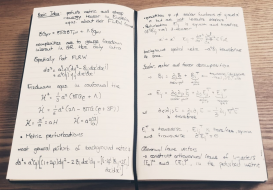As the study of the beginning of the universe, its overall structure and possible end, cosmologies aim at ordering the entirety of existence, yet face an impossibility implicit in their practice: How to order and totalize a universe that resists encapsulation? Focusing primarily on the scientific practice of modern physical cosmology—a growing field of study that many see as providing physics with its most promising avenues of discovery—this project asks what it means for our story of the cosmos to have become a science, and what that leaves for other modes of cosmological inquiry.
This project will develop the historical and technical specificity of three case-studies that form the basis of this investigation:
- the dark matter problem
- the Hubble constant tension
- theories of the multiverse.
By looking at each of these "problems"—themselves at varying stages of development and importance for the physics community—I hope to respond to the following questions: What may these examples tell us about how modern cosmology is constituted, and what lessons, if any, may be drawn for the development of pluralistic philosophical cosmologies?

